DM 168 Year in Review
African Person of the Year – The opposition – bloodied, not bowed
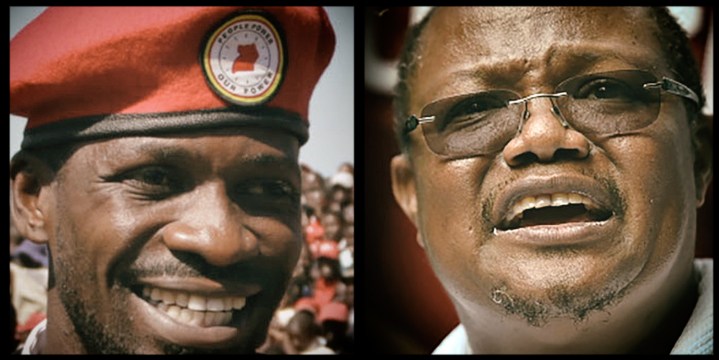
The Official Opposition is the African Person of the Year – this battered collective person remains one of the most endangered species in Africa. But sometimes, they do win.
This year, with its many elections, we have chosen the political opposition as our “African Person of the Year”. We have merged all those often heroic, mostly embattled and frequently bloodied individuals who usually wage hopeless struggles against overwhelming incumbent forces, into one abstract and representative figure worthy of recognition. This battered collective person remains one of the most endangered species in Africa. For many years he or she barely existed at all, as the continent’s countries were largely dictatorships or at best one-party states.
The end of Cold War at the end of the 1980s discredited one-party- particularly Marxist-states and Western donors could stop indulging those authoritarian leaders who had been on the West’s side. This launched a “second independence” wave across much of Africa as many countries unbanned opposition parties.
Three decades later Africa has many more ostensible multiparty democracies than it had in 1990. Nonetheless the American NGO Freedom House, which tracks democracy and political freedom, ranked only 16 of Africa’s 54 states as genuine electoral democracies in its 2020 report.
Even among these, it ranked only eight as “free” countries, with adequate protection of political freedoms and civil liberties. It rated 21 of Africa’s states as “Not Free” and the largest number, 25 as “Partly Free.”
Roughly speaking, then, it is on the fringes of those Not Free and in the midst of those Partly Free countries (sometimes called “donor democracies” because they simulate democracy to maintain donor support but are really authoritarian) that Africa’s opposition wages its mostly quixotic struggles.
This year was a particularly intense period for the embattled opposition, as 16 countries held elections, though Ethiopia, controversially, postponed its national legislative elections (which indirectly also elect the prime minister/head of government) until next year because of the Covid-19 pandemic.
Perhaps no country exemplified the beleaguered state of opposition leaders better this year than Uganda where, on 1 December, singer Bobi Wine suspended his campaign to challenge incumbent President Yoweri Museveni for power in the 14 January elections because of the constant violence unleashed against him and his supporters.
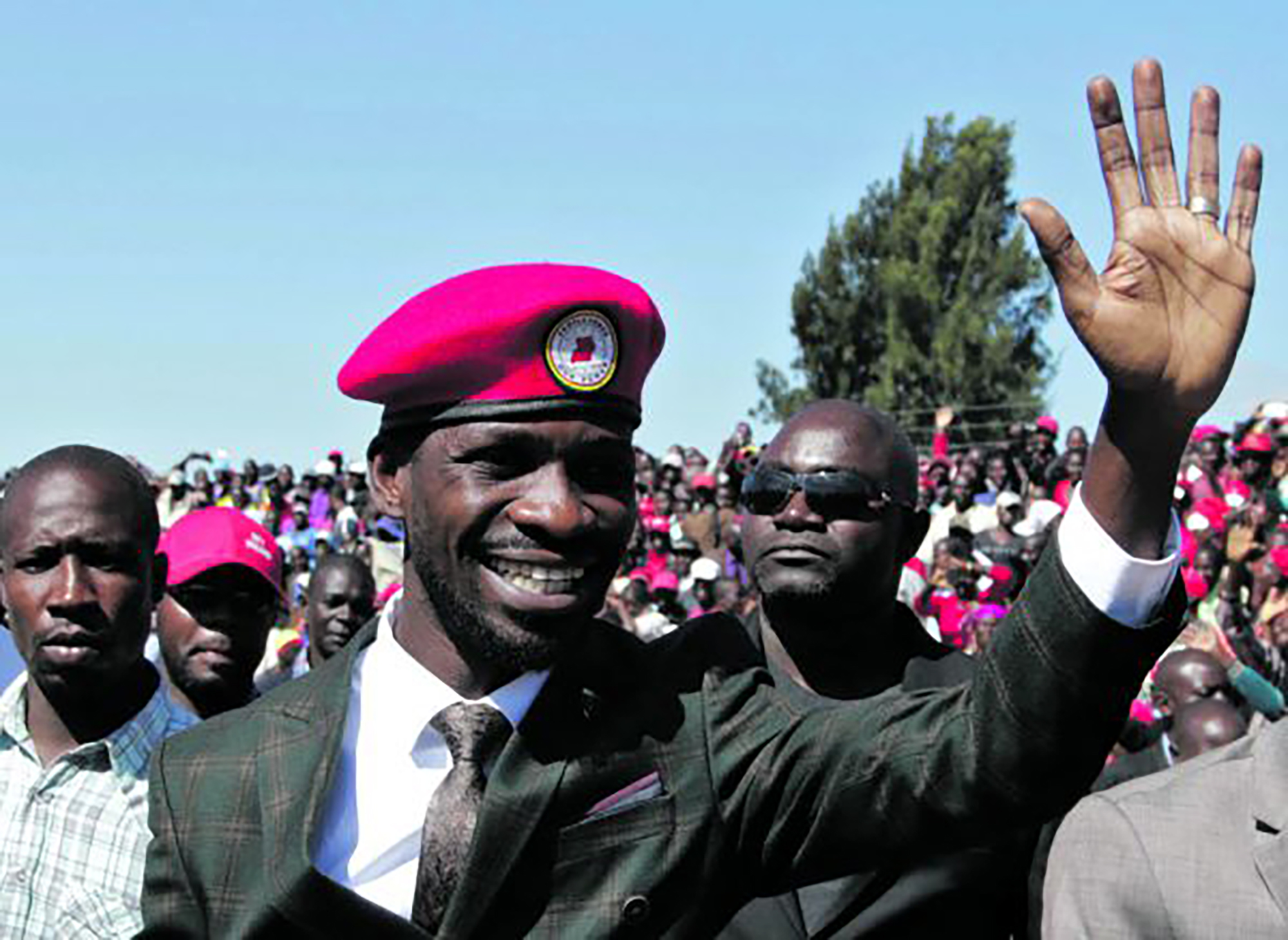
Ugandan opposition leader Bobi Wine (C) waves to the crowd as he arrives for the Zimbabwe opposition Movement For Democratic Change (MDC) party in Gweru, Zimbabwe, 25 May 2019. The part is set to elect three vice president, women and youth assembly chairpersons, treasure-general and vice chairmanship. Nelson Chamisa is poised to return his presidency. EPA-EFE/AARON UFUMELI
Wine was only four when Museveni, 76, came to power in 1986. He has twice amended the constitution to allow him to run a sixth time in 2021 for another five-year term.
In Tanzania, President John ‘Bulldozer’ Magufuli won re-election in October after beating or arresting the opposition into submission before the first vote had been cast. Tundu Lissu, presidential candidate of Chadema, returned from exile in Belgium in July to contest the elections – despite having being shot several times in an assassination attempt in 2017. He and other opposition candidates endured constant harassment in this year’s campaign.
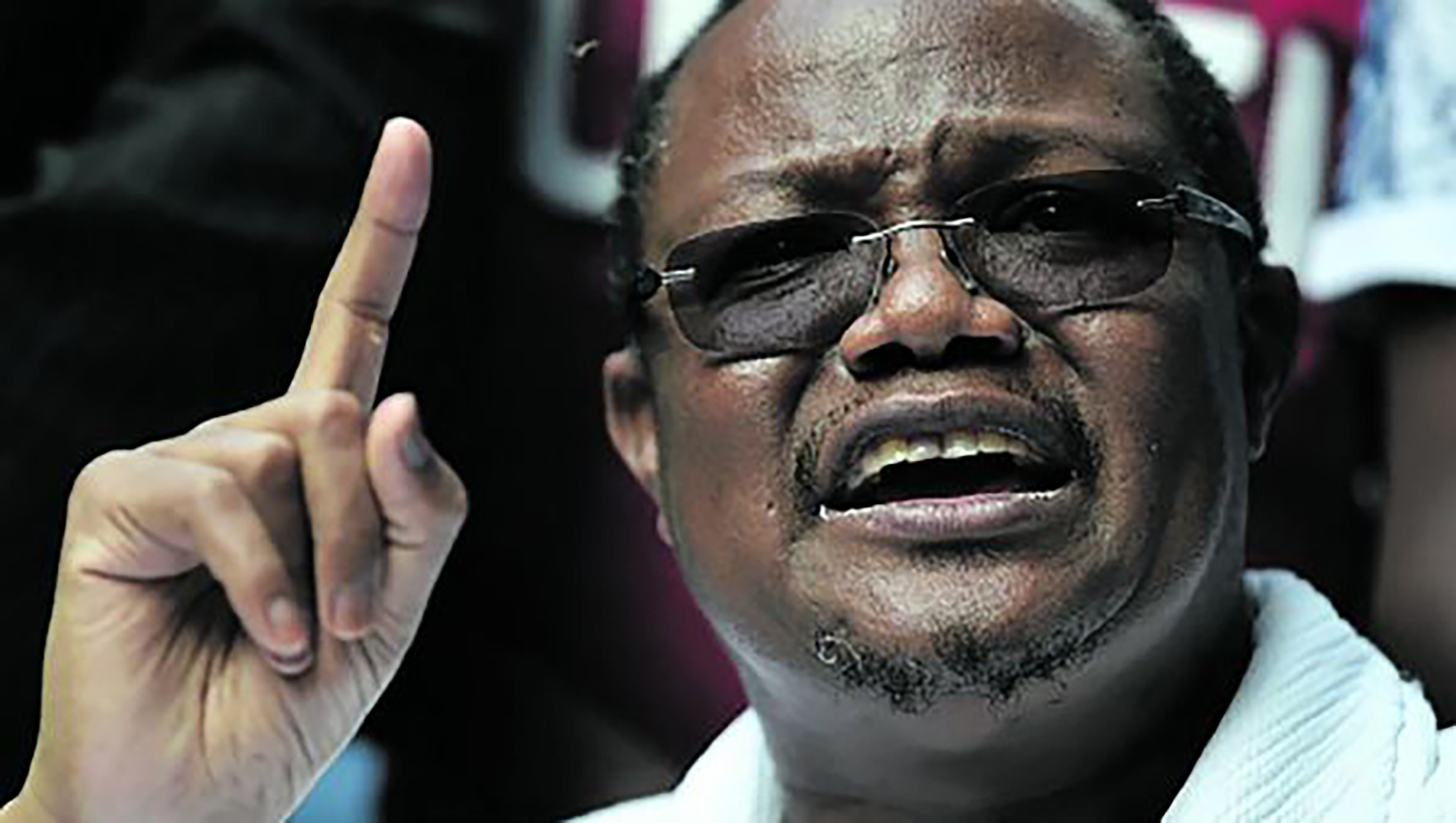
Tanzanian main opposition chief Tundu Lissu gestures from his wheelchair on January 5, 2018 in Nairobi, as he is wheeled by a supporter from a press conference to the hospital where he was admitted after being shot and critically injured at his home in September 2017.(Photo credit should read TONY KARUMBA/AFP via Getty Images)
Magufuli, leader of the CCM, which has governed Tanzania since independence, officially won by a landslide with 84% of the vote to Lissu’s 13%, but the US embassy, among others, cast doubt on the integrity of the vote. So too, at least implicitly, did the Johannesburg-based Electoral Institute for Sustainable Democracy in Africa (EISA) which sent a mission to observe the election.
The EISA said: “The political environment in which the 2020 elections took place was less open and less tolerant than previous elections in Tanzania, including the limitation of political campaigning, freedom of assembly, freedom of speech and freedom of expression.”
Grant Masterson, EISA’s senior manager for governance institutions and political processes, who was deputy chief of mission, praises Lissu and Wine as “truly admirable figures” who have resisted the efforts of governments to stifle the opposition. “Despite significant danger to their persons”; however, “tragically, though, they have little to show for their efforts. Such heroism, while admirable … largely fails to meaningfully alter the calculations at the ballot.”
In two other important countries, Cote d’Ivoire and Guinea, another all-too-familiar African electoral playbook was reprised this year when incumbent presidents Alassane Ouattara and Alpha Condé respectively, manipulated national constitutions to allow themselves third terms as presidents. Both won elections that the opposition largely boycotted and which were in any case judged dubious by most objective observers.
And on Friday, 4 December the top court in violence-wracked Central African Republic rejected the candidacy of former president François Bozizé who intended to run against the incumbent Faustin-Archange Touadéra in the 27 December presidential elections.
But 2020 has not been all bad for the opposition. For Masterson, the highlight was Malawi, where Lazarus Chakwera of the Malawi Congress Party defeated the incumbent Peter Mutharika in the June 2020 re-run presidential elections. In May 2019, Mutharika had won with only 39% of the vote against Chakwera with 35% and Saulos Chilima of the United Transformation Movement with 20%. But the courts annulled the results on grounds of electoral fraud and called for new elections. It was only the second time in African history that a court had overturned an election victory by the incumbent.
For the rerun, Chakwera and Chilema joined forces –a rarity among African oppositionists – to defeat Mutharika.
The opposition was also victorious in the Indian Ocean island state of Seychelles, on 25 October. Anglican priest Wavel Ramkalawan of the party Linyon Demokratik Seselwa defeated incumbent President Danny Faure of the United Party, which had held power since independence in 1976.
Nor is the political opposition always embattled. In Ghana, one of the few beacons of real democracy on the continent, the incumbent Nana Akufo-Addo officially won the presidential election of 7 December which was a contest between him and his old rival, the former president John Mahama, who had defeated him in the 2012 election but whom he defeated in 2016. Though Mahama is contesting the outcome, Ghana seems to be mellowing into a fairly “normaldemocracy” where the presidency alternates between opponents.
That is by no means universally true of the continent. Masterson also says “not all cries of foul play by the opposition should be uncritically accepted”. His “biggest black mark against them would be the Trump-esque tactics – constantly complaining about the electoral landscape, unfairness, rejecting elections, even when the results weren’t meaningfully altered”.
Often the primary goal of their campaigns is to undermine the credibility of an election process, “thereby excusing their electoral losses”. If they really believe elections were rigged, they should collect overwhelming evidence of it. Instead they often fail to organise meaningfully, and are easily outflanked by incumbents.
Other analysts have suggested that this criticism could be levelled against Zimbabwe’s Movement for Democratic Change (MDC) which rejected ZanuPF’s victory in the 2018 presidential and legislative elections but failed to produce any credible, substantial evidence of rigging.
And in Zimbabwe, as elsewhere, unlike in Malawi, opposition politicians too often fail to set aside their differences to dislodge governments that have become entrenched, despite doing a bad job.
But of course the main fault does not lie with the opposition. Overall, says Masterson, “2020 has consolidated concerning patterns for democratic elections in Africa, with several important countries heading in the wrong direction” – away from greater democratic participation.
The African Union’s insistence that changes of government must be constitutional, “looks good on paper.” But it needs more active support from AU institutions to promote the AU’s good governance principles.
In the absence of such support, “legal frameworks and sometimes judiciaries have been weaponised along with more conventional means to frustrate opposition parties contesting power”. “This ironically leaves the only viable route to power for opposition candidates through non-electoral means, placing them at odds with the AU’s campaign on silencing the guns.
“Countries such as Ghana, South Africa and Malawi, where the judiciary acts as a constraint on the power of the executive and is a legitimate option for opposition parties should be the template for the AU’s efforts to promote peaceful alternation on power.
“The current conflict in Ethiopia is just the latest example of what can happen when electoral politics is undermined in favour of ‘national security’, a short-term goal that often leads to longer-term, more challenging problems down the line,” Masterson says. DM168

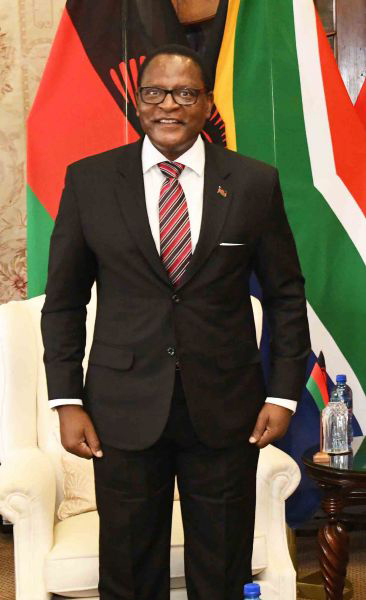
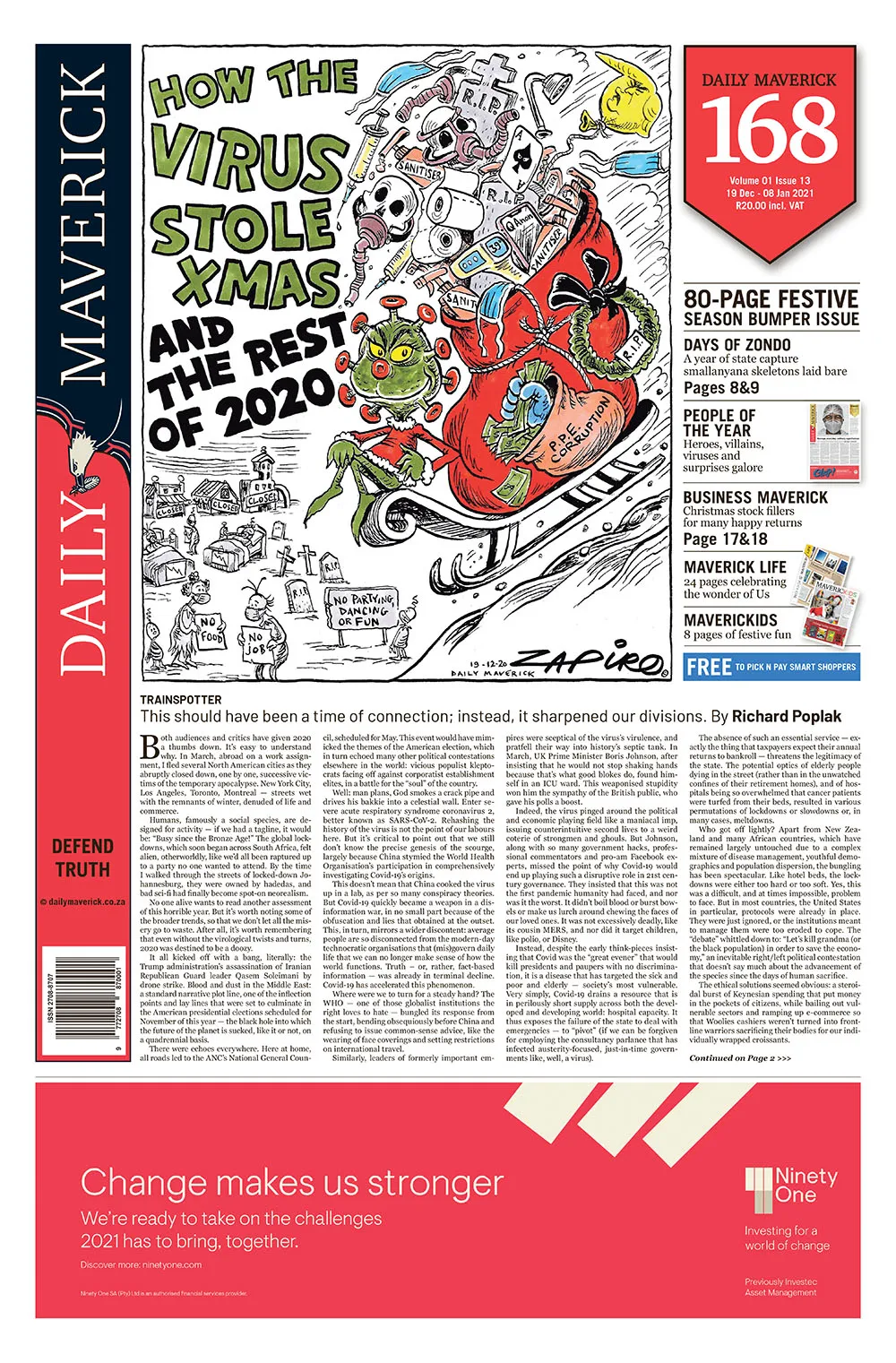


















Great piece thanks. I often wonder though about the western lens of African politics. Of course a lot has been written about it in African universities but there seems never to gain legitimacy, and I suppose of course its economic.
Great piece thanks. I often wonder though about the western lens of African politics. Of course a lot has been written about it in African universities but this seems never to gain a legitimacy, and I suppose of course its economic.